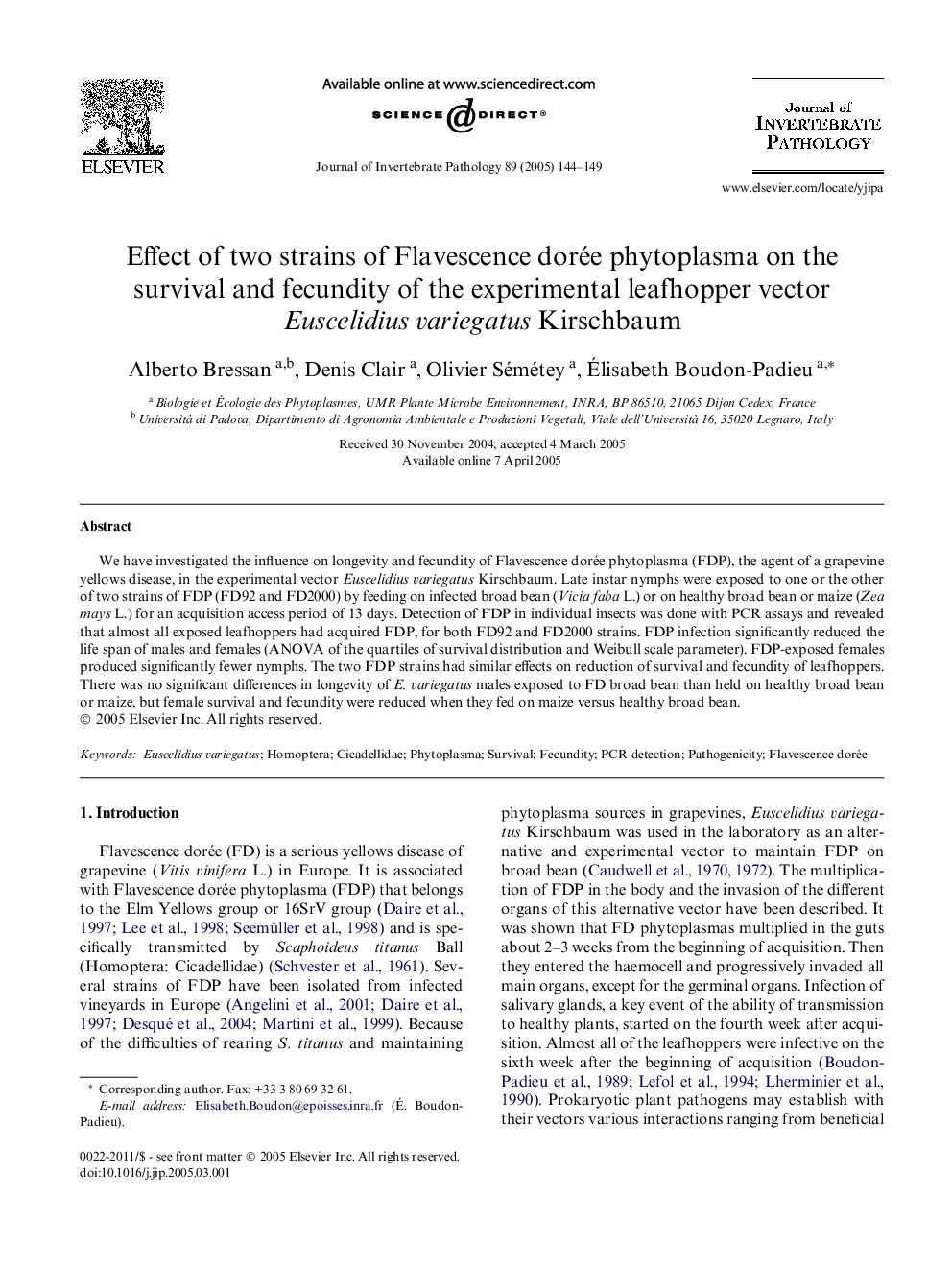| Article ID | Journal | Published Year | Pages | File Type |
|---|---|---|---|---|
| 9486373 | Journal of Invertebrate Pathology | 2005 | 6 Pages |
Abstract
We have investigated the influence on longevity and fecundity of Flavescence dorée phytoplasma (FDP), the agent of a grapevine yellows disease, in the experimental vector Euscelidius variegatus Kirschbaum. Late instar nymphs were exposed to one or the other of two strains of FDP (FD92 and FD2000) by feeding on infected broad bean (Vicia faba L.) or on healthy broad bean or maize (Zea mays L.) for an acquisition access period of 13 days. Detection of FDP in individual insects was done with PCR assays and revealed that almost all exposed leafhoppers had acquired FDP, for both FD92 and FD2000 strains. FDP infection significantly reduced the life span of males and females (ANOVA of the quartiles of survival distribution and Weibull scale parameter). FDP-exposed females produced significantly fewer nymphs. The two FDP strains had similar effects on reduction of survival and fecundity of leafhoppers. There was no significant differences in longevity of E. variegatus males exposed to FD broad bean than held on healthy broad bean or maize, but female survival and fecundity were reduced when they fed on maize versus healthy broad bean.
Keywords
Related Topics
Life Sciences
Agricultural and Biological Sciences
Ecology, Evolution, Behavior and Systematics
Authors
Alberto Bressan, Denis Clair, Olivier Sémétey, Ãlisabeth Boudon-Padieu,
